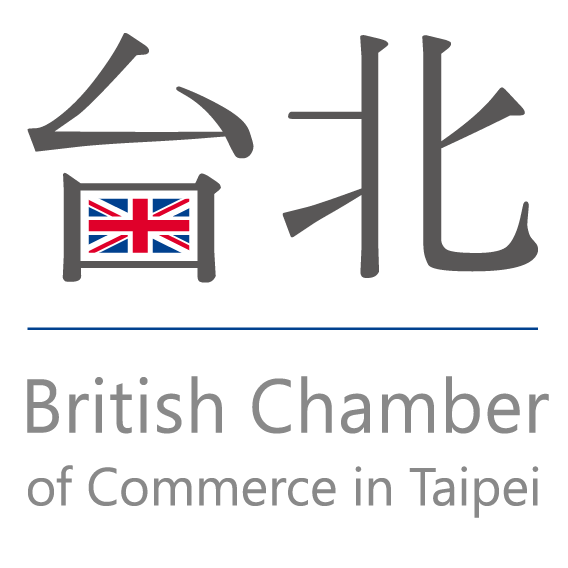Taiwan Banks: Is ESG part of your KYC?

We have reviewed some aspects of the impact of ESG on Taiwan's banks and now need to take a look at how they should be utilizing and analyzing ESG reports, especially now we are well and truly into 2023.
But first, we should understand a fundamental process that every bank undertakes with its customers, whether they be corporate entities or individuals. This fundamental process is part of the onboarding of a customer, and it is known as Know Your Customer or KYC in bank jargon.
If you have recently opened a bank account, you will have been asked to provide a reasonably large amount of physical data (copies of IDs, passports, evidence of address). In addition, you will have filled in a comprehensive set of questionnaires that deal with such issues as the intended use of your account, likely deposit schedules and regular withdrawals.
If the bank is interested in selling other products to you, they will ask you to complete detailed questions on your risk appetite and your goals for investing.
This process seems to create agitation, particularly amongst individual and small business customers. As an individual, perhaps you can take some small pleasure in understanding the process for large corporates and listed companies is usually even more detailed.
The KYC process is mandated by regulators and typically banks take a conservative approach and probably seek to capture even more information than regulations require, but that is up to each individual bank.
The KYC process also allows banks to “risk rate” their clients, usually into three categories of high, medium, and low. If you are viewed as high risk by your bank, then expect to have your account reviewed and checked on an annual basis (medium risk, usually every three years) (low risk, usually every five years).
My 30 years of banking experience would lead me to view listed companies as high risk due to the many hurdles they must cross throughout each year to maintain their listing and to ensure they continue to attract investors. So, let’s assume, for the sake of this article, that all Taiwanese listed companies are viewed as high risk by their banks.
Every year they need to go through this KYC annual review so that their banks remain comfortable retaining the listed company as a client. Yes, it is onerous, but again, it’s an activity expected by the regulators and not an opt-in/opt out activity.
Amended rules
So, that is just a quick explanation of day-to-day bank activity. Why do I think it is important for you to understand this?
Well, here we are, already in early March 2023 and listed companies in Taiwan are now required to submit ESG reports. For example, the Taiwan Stock Exchange (TWSE) through the Rules Governing the Preparation and Filing of Sustainability Reports by Listed Companies, requires listed companies to submit ESG reports.
The rules were amended by the TWSE in September 2022 by adding ESG performance indicators to be disclosed in the ESG reports. The aim of the amended rules is to strengthen the disclosure of ESG information.
Similar rules are to be found in the Taipei Exchange (TPEx) Rules Governing the Preparation and Filing of Corporate Social Responsibility Reports by Listed Companies. Accordingly, in 2023, companies listed on the TWSE and TPEx are required to issue annual ESG reports. These reports must be based on the guidelines set out by:
- The Global Reporting Initiative (GRI), an international independent standards organization that helps businesses, governments and other organizations understand and communicate their impacts on issues such as climate change, human rights, and corruption.
- The Sustainability Accounting Standards Board (SASB), an independent nonprofit organization whose mission is to develop and disseminate sustainability accounting standards that help public corporations disclose material, decision-useful information to investors.
- The Task Force on Climate-related Financial Disclosures (TCFD), created in 2015 by the Financial Stability Board (FSB) to develop consistent climate-related financial risk disclosures for use by companies, banks, and investors in providing information to stakeholders.
So, the stage is now set for listed Taiwan companies and the ESG reporting that is required of them.
Showing commitment
But my question is whether Taiwan banks are asking their listed customers for this information as part of either their initial KYC, or per their annual review?
I acknowledge that perhaps my years in banking have made me somewhat conservative, but I believe Taiwanese banks must be reviewing the ESG reports of their listed customers, and it should become part of best practice (if it is not already being followed).
The banks should already know the standards for reporting as listed above. If any bank is in doubt, it is time to know and understand those requirements.
Doing nothing about ESG reporting and waiting for some magical industry wide standard approach is not an option. It must be said that banks, and not just Taiwanese banks, are not that good at cooperating on such issues. Try asking banks about the idea of a centralized onboarding/KYC database and listen to the generally negative responses.
In my opinion, banks that are not acting now regarding their customer’s ESG reporting standards will attract the unwanted negative attention of both the regulators and the investment community. One possible excuse — although in my opinion, an excuse that does not “hold water” — is the need for additional resources to both analyze and understand ESG reports, even if such resources simply are not available just now.
Well, there are already quite a few major international ESG rating firms that can provide automated ESG scoring solutions, at a cost, naturally. However, banks should go further.
They should show their commitment by ensuring they train staff in ESG and the analysis of ESG reports. I know that such staff will command a premium in terms of compensation, but I firmly believe investment in financial technology (FinTech), artificial intelligence (AI), machine learning (ML), and highly trained staff will prove a boon to those banks utilizing such assets in the highly competitive Taiwan banking environment.
Taiwan banks need to get onboard with KYC/ESG now and senior bank management must step up and meet the challenges as the ESG message must come from the top. Treat your talented ESG staff with the care and respect they deserve. Get on board before the KYC/ESG train leaves the station.
Again, I fear I sound dogmatic on this issue, and again I make no apologies. It is meant to be dogmatic.
There are many Taiwan banks that are already taking the correct approach with their KYC and their listed customers’ ESG reports, but I am concerned there may be quite a few that are not as motivated or up to the task. My advice is, resources are available, utilize them and stand out from the crowd.
Paul Shelton has a 30-year history in banking, working as head of Legal & Compliance and MLRO for the Asia Pacific branches of major international financial institutions in Japan, Singapore, Australia, and Hong Kong. He is also experienced in working with financial regulators across the Asia Pacific and provides consultancy services to Taiwanese financial and non-financial industry associations in all aspects of Compliance, AML/Sanctions, and Governance. He resides in Taipei.
